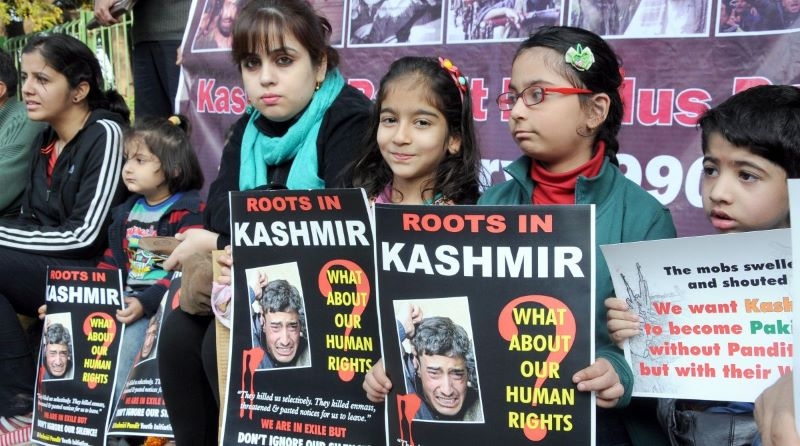It's 33rd anniversary and Kashmiri Pandits still away from homeland!
Total Views |

On this fateful cold night of January 19, 1990, the entire communi ty of Kashmiri Hindus (350,000, i.e., 98% of their population in the Kashmir Valley in 1990) was kicked out of their homes by Islamic terrorists to Islamize the Valley. The night witnessed macabre happenings, the like of which had not been witnessed by Kashmiri Pandits after the Afghan rule (1752-1819).
Those who experienced the fear of that night are unlikely to forget it in their lifetime. For future generations, it will be a constant reminder of the brutality of Islamic radicals, who had chosen the timing very carefully.
In the preceding months, the state government had collapsed, law and order were nonexistent. The police had deserted their posts, and the Pandits were left to themselves with their survival hanging in the balance. The terrorists had already slaughtered eleven hundred Kashmiri Pandits. Scores of dead bodies were seen floating in the river Jhelum.
The Government of India looked the other way, didn't care, or should it be said that New Delhi was too far away. To make Kashmir an Islamic republic, impose Islamic Law Sharia, and merge it with Pakistan, the Islamists and Kashmiri Muslims gave the Hindu Pandits three options on January 19, 1990 viz.
Ralive – Convert to Islam
Tsaalive – flee the Valley
Ya Galive – or face death
These slogans, broadcast from the loudspeakers atop every mosque, numbering roughly 1100, urged the hysterical mobs to embark on Jehad against the Hindus. Tens of thousands of Kashmiri Muslims poured into the streets of the Valley, shouting 'death to India' and 'death to Kafirs'.
Thus took place the 20th century exodus of Kashmiri Hindu Pandits on January 19, 1990, when the entire Pandit community left the Kashmir Valley for good, creating one of the greatest refugee migrations in recent Indian history. January 19 is Kashmiri Pandit Exodus Day, a sad reminder to the world of our tragic story.
Thirty-three years later, the Kashmiri Pandit community is still a people without a homeland, and yet the world continues to ignore their plight. Nevertheless, their hope remains that they will one day return safe and secure in the Valley as they attempt to preserve their community's socio-religious identity even in the in exile.

